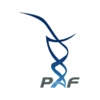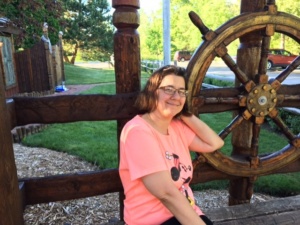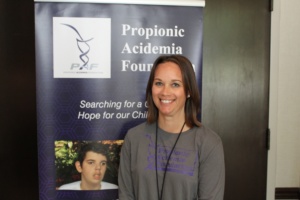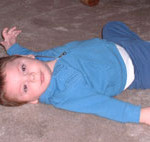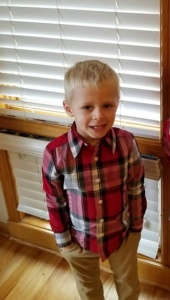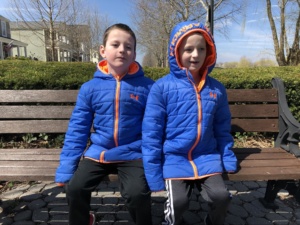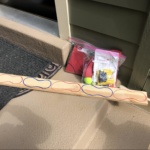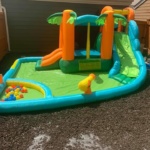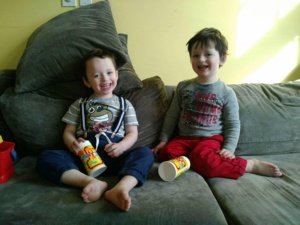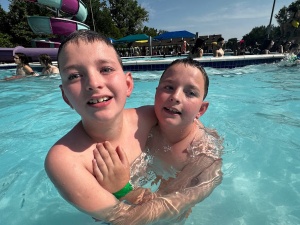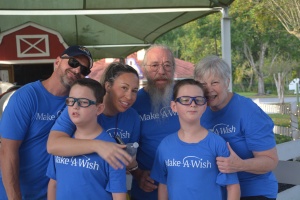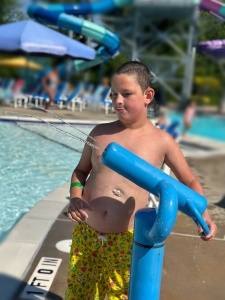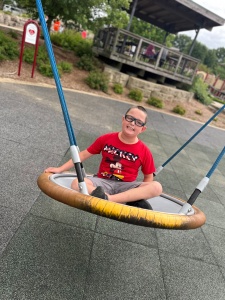Nila’s Story
Nila Rechelle was born 1/6/12 at 4:02am via emergency cesarean. She was three weeks early and weighed in at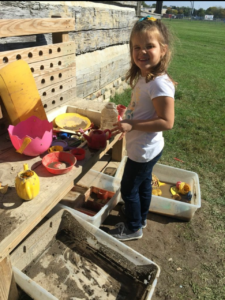 6lbs 4oz and 19 inches long. She passed all initial screenings and appeared to be a healthy baby girl. She did struggle to latch, so I pumped and bottle fed her. She did not make any attempt to suck whether it be breast or bottle. The first day she was able to keep the breastmilk down, but then I was unable to produce anything, so we introduced formula to keep her fed. Shortly after the first formula, Nila began to projectile vomit anything that went in. Joe and I were concerned for her not being able to keep anything down. The nurses over and over tried reassuring us this was completely normal for a new baby. The next day Nila began to turn jaundice on us. She had to stay under bilirubin lights 24 hours a day and only out of the incubator to feed and diaper changes. Her color was improving minimally and her feeding seemed to improve slightly. She had to stay in the hospital an extra day. The doctor released us and we went home. All seemed well for the first few days home with the exception of a few vomiting episodes. Then, we received a call from our pediatrician letting us know we needed to take her to the hospital the next morning for additional blood spots and urine analysis. He let us know her newborn screening came back with signs of a metabolism disorder similar to PKU. He scheduled her first appointment with Riley Children’s Hospital in Indianapolis the following Monday with the Genetics team. The blood and urine were rushed off to Duke and we worried and waited impatiently for Monday. We got to Riley and met the team, they informed us of her diagnosis of Propionic Acidemia. This was a huge blow for us. How could our perfect baby girl have to deal with such a terrible disease? How were we going to manage this? So many questions and so many unknowns. Lucky for us, we came in contact with several families through Facebook forums and the dieticians and genetics counselor became family and we were in constant contact. What seemed so scary at first, motivated us and we learned so much and found out it wasn’t as terrible as we thought.
6lbs 4oz and 19 inches long. She passed all initial screenings and appeared to be a healthy baby girl. She did struggle to latch, so I pumped and bottle fed her. She did not make any attempt to suck whether it be breast or bottle. The first day she was able to keep the breastmilk down, but then I was unable to produce anything, so we introduced formula to keep her fed. Shortly after the first formula, Nila began to projectile vomit anything that went in. Joe and I were concerned for her not being able to keep anything down. The nurses over and over tried reassuring us this was completely normal for a new baby. The next day Nila began to turn jaundice on us. She had to stay under bilirubin lights 24 hours a day and only out of the incubator to feed and diaper changes. Her color was improving minimally and her feeding seemed to improve slightly. She had to stay in the hospital an extra day. The doctor released us and we went home. All seemed well for the first few days home with the exception of a few vomiting episodes. Then, we received a call from our pediatrician letting us know we needed to take her to the hospital the next morning for additional blood spots and urine analysis. He let us know her newborn screening came back with signs of a metabolism disorder similar to PKU. He scheduled her first appointment with Riley Children’s Hospital in Indianapolis the following Monday with the Genetics team. The blood and urine were rushed off to Duke and we worried and waited impatiently for Monday. We got to Riley and met the team, they informed us of her diagnosis of Propionic Acidemia. This was a huge blow for us. How could our perfect baby girl have to deal with such a terrible disease? How were we going to manage this? So many questions and so many unknowns. Lucky for us, we came in contact with several families through Facebook forums and the dieticians and genetics counselor became family and we were in constant contact. What seemed so scary at first, motivated us and we learned so much and found out it wasn’t as terrible as we thought.
Nila struggled with her initial milestones such as holding her head up, rolling and crawling. She had Physical Therapy, Occupational Therapy, and Developmental Therapy several times each week. Once we strengthened her tiny muscles she took off. She zoomed through her milestones! She walked right before 10 months and then she was released from therapy. She has had 17 hospital stays and many more lengthy ER visits for D10 fluid boosts. Ear infections, gastrointestinal bugs and the periodic cold were the main reasons for her hospital stays and visits. The only metabolic stay was a 1 week stay after she had gotten RSV. We were close to getting a tube in but Nila got stronger each day with her sick formula and D10 and started eating again. To date, she presents as a mild case of PA, but we do not take that lightly as she may began to show late onset symptoms as she gets older.
She has always eaten by mouth. She was recently taken off of her metabolic formula and she loves it! She has an extra 8 grams to eat in regular foods in addition to the 28 grams she already gets through food. She enjoys mac-n-cheese, chips, mushrooms, fries, fruits of all kinds, pickles and popsicles galore. Our biggest struggle now is to make sure she gets her daily protein intake goal met and to make sure she is not sneaking food.
Nila is thriving and doing everything a 6 year old girl is able do! Nila started Kindergarten this past fall and she is one of the top students in her class. She was selected to participate in the High Ability class at one of our local schools. She is smart as a whip and is learning so much in her outdoor kindergarten class. She loves gymnastics, playing softball, riding her bike, fishing, gardening, painting nails and doing her make-up, digging for worms, exploring outdoors and making mud slime!
